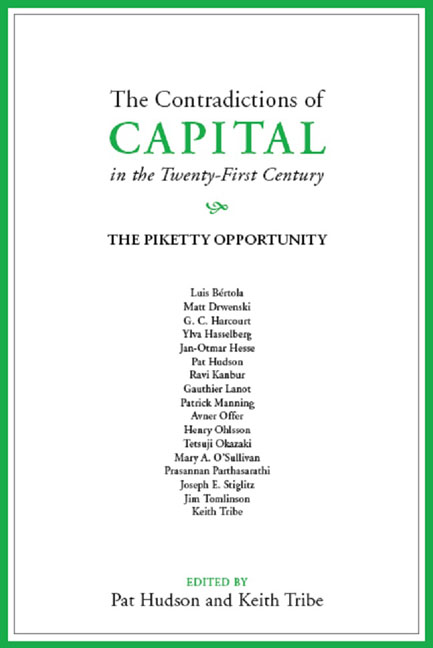2 - Capital and Wealth
Published online by Cambridge University Press: 16 August 2023
Summary
The focus of Thomas Piketty’s analysis of modern capitalism is the tremendous growth during the last forty years or so of inequality in income and wealth in the advanced industrial economies. However, he places this forty-year period in the context of a much longer time frame; he argues that this divergence in the distribution of income and wealth is far from being a deviation from trend: it in fact represents a return to a normal path of development following a prolonged deviation during the twentieth century, especially during the long post-war boom ending in the mid 1970s. In approaching growth and inequality in this way Piketty has returned to the principal preoccupations of the political economy of the early nineteenth century: an attention to the long-term aspects of accumulation, distribution and growth associated with the writings of Robert Malthus, David Ricardo, John Stuart Mill and, of course, Karl Marx. Modern economists are on the whole forward looking, seeking to identify the trend of the next few years on the basis of data that has for the most part only been available since the middle of the twentieth century. While economic historians have sought to project a modern statistical framework backwards into the remote past, economists seek to extrapolate patterns from current data. In part, the attention that Piketty’s book has received is owed to the way in which he takes the standard analytical framework used by modern economists but looks back, rather than forward. However, he shares with modern economists a paramount interest in the policy framework of the present and immediate future. Using masses of long-period data – and betraying the French origins of his work by his reliance on long runs of tax and estate duty data dating back to the early nineteenth century – he presents a new profile for the accumulation of capital during the process of industrialization and urbanization that created the wealth of today’s advanced industrial nations. While he rejects the inferences about long-term growth drawn by nineteenth-century political economists, he nevertheless follows their lead in seeking to establish long-term laws of development (if not of motion) in modern economies.
- Type
- Chapter
- Information
- The Contradictions of Capital in the Twenty-First CenturyThe Piketty Opportunity, pp. 13 - 28Publisher: Agenda PublishingPrint publication year: 2016
- 1
- Cited by



